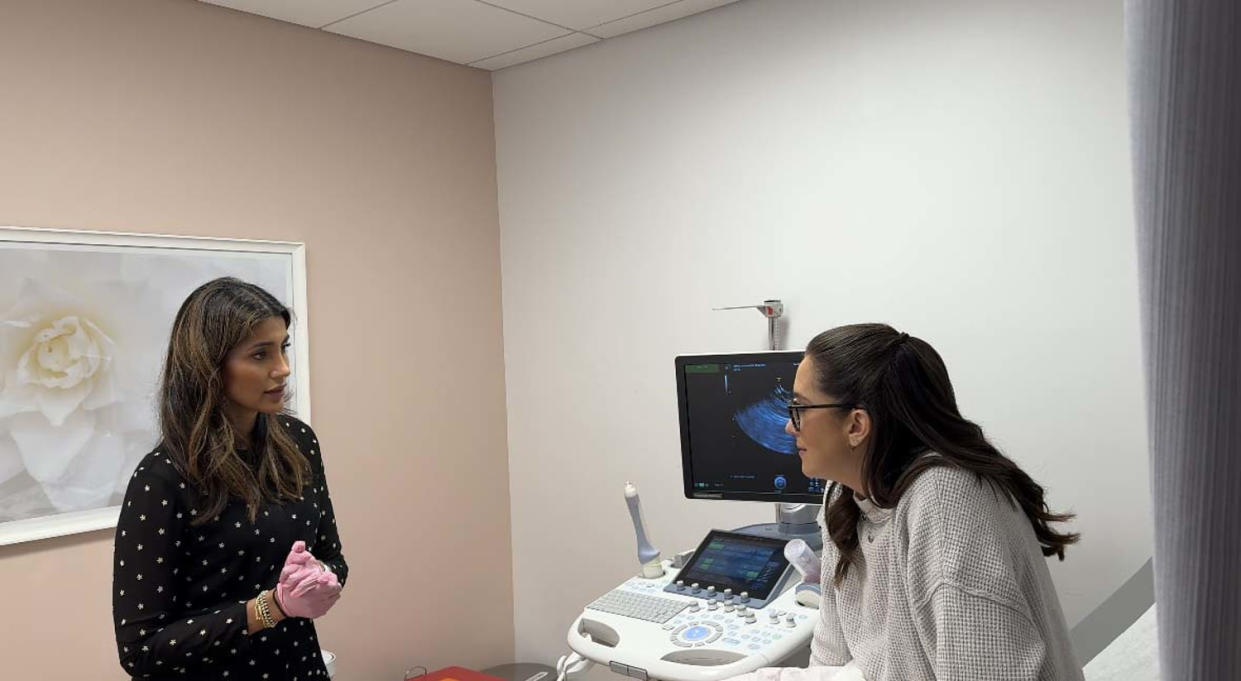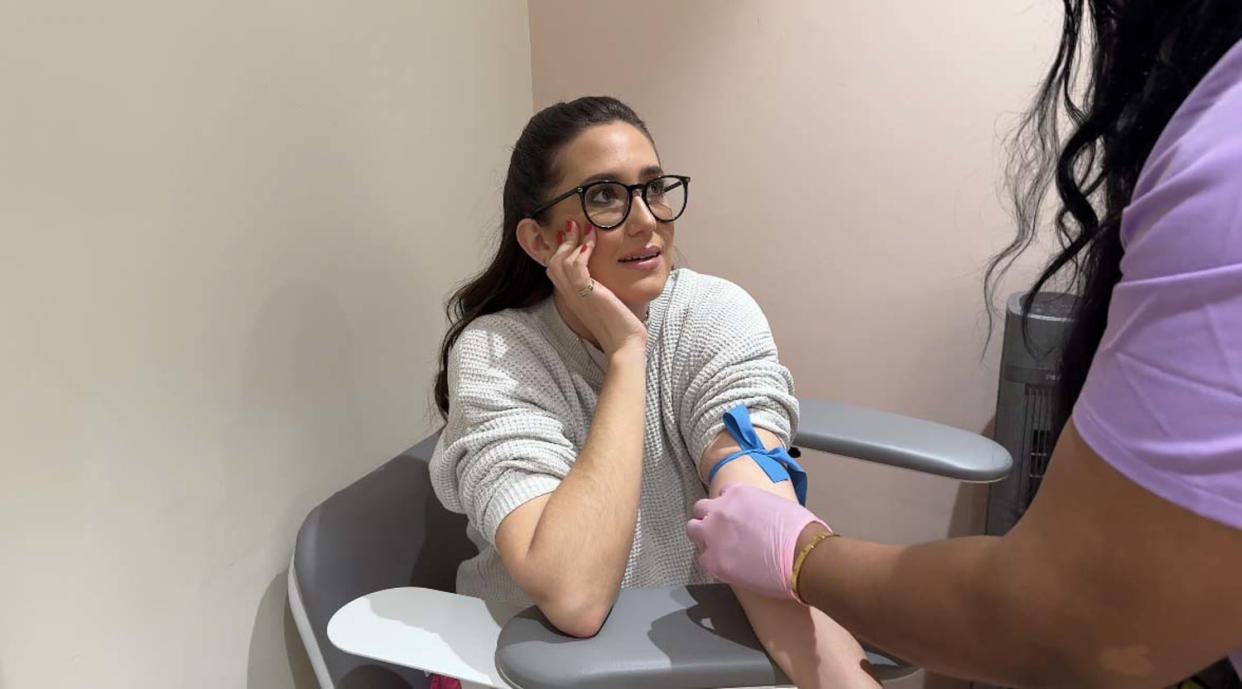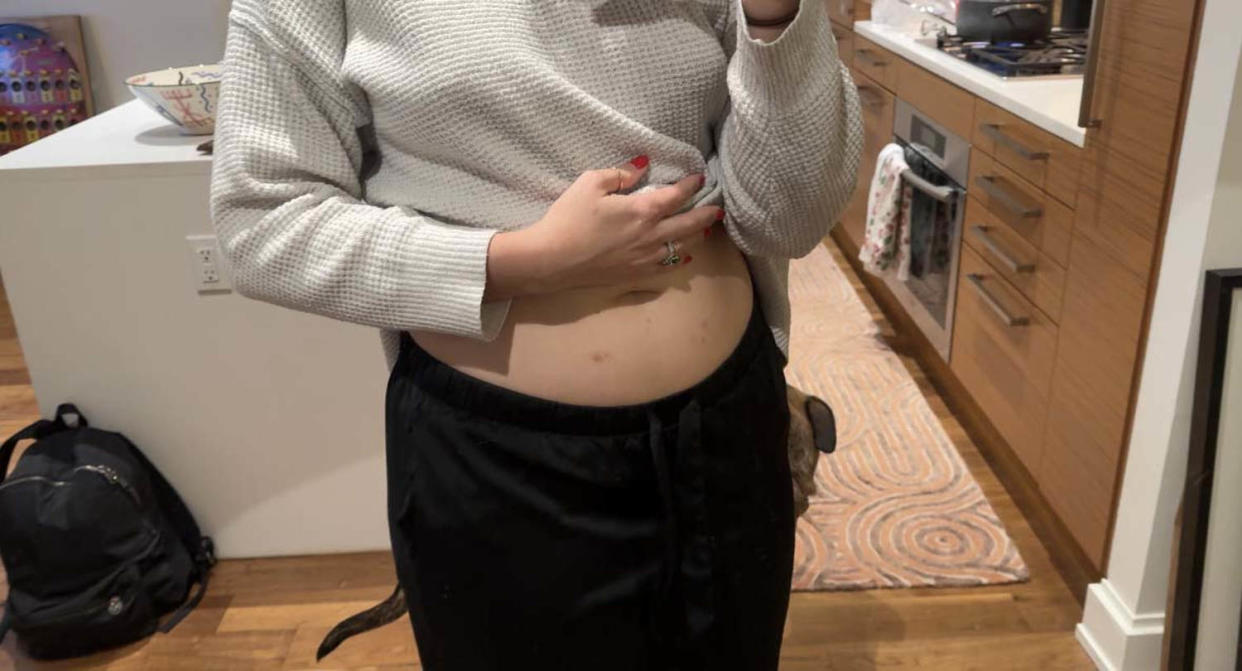Savannah Sellers: I decided I want kids. Then I found out I have PCOS
Asking for a friend: How do you know when you’re ready to have kids? OK, I confess: I’m the friend. Or rather, my husband and I both are.
It’s a constant topic of conversation in our house. Here are our stats: We’ve been married for under two years. I’m 32. He’s 35. After much deliberation over the seven years we’ve been together, we now very much hope to build a family that includes multiple children. As two career-oriented people enjoying life as newlyweds, the questions have been: When? Are we ready? It’s a big thing to wrap your head around. Especially if, in many ways, you still feel like a kid yourself! When you’re at the starting line, the road ahead seems daunting.
When I turned up at one of RMA of New York’s fertility clinics to see Dr. Lucky Sekhon four months ago, my intention was simply to gather some baseline information about my fertility, not to move forward with any treatments. I’ll be honest: I did not want to freeze my eggs. The process seemed, frankly, too hard — and painful. And potentially unnecessary given that I’m happily married and a big reason women freeze their eggs is that they are still looking for their life partner, according to one 2018 study.
Rather, we were thinking about how I’d likely be in my mid-30s in my first pregnancy. I wanted to know: How were my chances looking? And if we want more than one child, what do I need to know about the chances of getting pregnant in my late 30s or early 40s?
This is the part of the story I love to share because I believe it’s an actionable item for all women: I had a fertility assessment done. Specifically, I underwent a simple blood draw to test my anti-mullerian hormone (AMH) levels and a quick transvaginal ultrasound to get a peek at my ovaries, which told me a lot about my fertility. (Though research is mixed on just how much stock we can put into those tests.) But if you’re curious, I encourage you to look into it! In my case, I learned something very revealing. My doctor diagnosed me with polycystic ovary syndrome, or PCOS.

PCOS is a common hormonal condition that can cause a wide range of symptoms, from migraines to weight gain to fertility issues. While it affects an estimated 8-13% of reproductive-aged women, according to the World Health Organization, it can be difficult to diagnose. That’s because the indicators for the syndrome are based on markers that constantly fluctuate in the female body. To be diagnosed, a patient must have two or more of the following, according to the Mayo Clinic: 1. Irregular cycles; 2. High levels of androgens (think testosterone); and 3. Multiple cysts on the ovaries.
I have had irregular cycles for as long as I can remember. I’m never quite sure when my next period will start. And during my transvaginal ultrasound that day, Dr. Sekhon could see that my ovaries are cystic.
In some ways, this was a relief. Several unexplained issues and symptoms over the years suddenly made more sense.
But in many ways, PCOS is a frustrating diagnosis to receive. It’s hard to treat, and advice around the condition, which I’ve seen in many TikTok videos lately, leaves much to be desired. Take a walk! Avoid fried foods and burgers! Eat whole grains! Shouldn’t we all be doing those things anyway?
Back to that day at the fertility clinic, where I found myself laying on Dr. Sekhon’s exam table with a wand you-know-where because I was interested in understanding my fertility. Well, it turned out that PCOS was a major factor.
Think about it like this: Someone with regular menstrual cycles can probably figure out when they’re going to ovulate, and thus when they have the highest chance of getting pregnant. A woman who has PCOS and irregular cycles can’t figure that out so easily, so it’s harder to do the ovulation math that’s often part of trying to conceive.
As Dr. Sekhon told me, human reproduction is inefficient enough. Add this in, and it can be a real challenge to get pregnant naturally.
The good news was that the cystic nature of my ovaries made me a great candidate for an egg retrieval. In the same consultation where my PCOS was diagnosed, Dr. Sekhon saw 16 potential eggs on one ovary alone.

Armed with this new information, and after some ovulation explanation to my husband, we decided to move forward with freezing embryos to one day implant, and hopefully start our family. So in the end, I had to get comfortable with all those needles after all. I went through nine days of shots and monitoring that included more bloodwork and ultrasounds. My regimen began with two shots per day and monitoring every other, but soon upped to three shots per day with that blood draw and ultrasound every day. My refrigerator was filled with medications and my countertop housed a sharps bin stuffed with used needles. In short, it was intense. And those 16 eggs Dr. Sekhon could see in my ultrasound? They were getting large. So was my stomach. I learned that PCOS can make the side effects of hormonal shots more severe. I seemed like I could feel my ovaries with each step.

Ultimately, this process put us in a position we feel very hopeful about. And I’m now treating my PCOS symptoms with a drug called metformin that many women have found some relief on. (But I am definitely still eating french fries!)
And by the way, going through fertility treatments was hard. And painful. But not unnecessary, as I’d originally thought. That day in the fertility clinic, I never thought I’d be where I am today: with a diagnosis I knew nothing about, and with embryos on ice. The opportunity this could provide us to start a family when we're ready is invaluable. And honestly, I made myself really proud.
This article was originally published on TODAY.com





